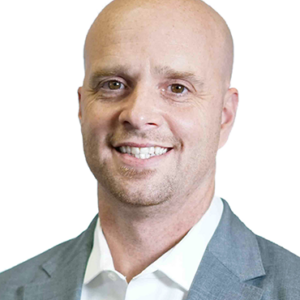Earlier this month on LinkedIn, I asked my followers about their 2024 fraud predictions. 82% of responders predicted a rise in deepfakes, and the rest were split between social engineering and earnings manipulation.
What is a deepfake? Chances are you’ve already seen one. Deepfakes are images and videos generated by artificial intelligence (AI) but used maliciously for harassment and extortion. In June of this year, the FBI released a public service announcement warning individuals – especially parents of young children – about the risks of posting photos and videos online and the potential for being targeted by malicious actors out to damage reputations or extort victims for money by manipulating the images to look like a subject was saying or doing something explicit or controversial. Reputational losses to celebrities and major brands could be huge if a deepfake were circulated in the media.
Social engineering is a significant risk to both organizations and individuals. In a social engineering attack, fraudsters use emotional manipulation techniques – often buffered by publicly available information – to compel the victim to turn over sensitive information like passwords and account data. In a business, this might look like a fraudster posing as the CEO via email and asking employees to “help her” access secure data by sharing login credentials, known as phishing. For a grandparent, this might look like a caller posing as a grandson needing a quick funds transfer to “get out of trouble”; this is known as a grandparent scam.
Earnings manipulation is a fraud tale as old as time, and increased pressures like economic uncertainty and a thinly stretched labor force may push executives to overstate performance to keep customers, shareholders, and employees calm or to negotiate higher compensation falsely.
What other risks are Bonadio practitioners considering as we enter the new year?
- Faster Payments: If you have not heard of FedNow, you will. It is the US government’s response to a regulated “faster payment” or “instant clearing” system for financial institutions that was deployed earlier in 2023. Gone are the days of three-day waiting periods for deposits of checks; funds are available immediately for participating institutions. While the idea seems great for the consumer, fraud protections available over slower payments, like making a stop-payment on a check waiting to clear, don’t exist for payments; the instant the money is transferred, it can’t be retracted. Not all financial institutions are participating – the FedNow system is still very much in its infancy, and you can learn more here. The US is behind other countries like the United Kingdom and India, which have been operating with similar systems for years, so we already know that just because a centralized government runs the system doesn’t mean it’s without risk. Indeed, in the UK, 97% of payment app fraud occurs on their Faster Payments System.
- Financial Exploitation: There’s no denying our population is aging. Mandatory retirement ages are being extended here in the US, and homes in rural Japan and Italy are increasingly empty because deaths of older residents in municipalities are outpacing new residents. The United Nations predicts that the older adult population will double by 2050. Older adults are at increased risk of fraud, not just from scams by strangers but from financial exploitation by trusted others in their lives. 2023 may have marked the official end of the COVID-19 pandemic states of emergency but not the end of inflation that came with it. As the family dollar is stretched thinner and thinner, potential fraudsters may feel pressure to take money from the one place they know has some recurring income and a nest egg – mom, dad, grandma, or grandpa.
- COVID Relief Exposure: In September, the IRS put a halt on all claims for its Employee Retention Tax Credit (ERC) because of the meteoric rise in applications out of “ERC mills,” or pop-up businesses that process these claims for a share of the proceeds. Most CPA firms, Bonadio included, assisted clients with these claims for a flat fee, not contingent on the size of the credit claimed. The IRS crackdown predicted doesn’t only put these pop-up firms at risk. Business owners who signed the amended returns to make the fraudulent ERC application will also be on the hook. The use of Payroll Protection Program (PPP) funds is also increasingly under scrutiny. Some nonprofit boards are just beginning to discover that the funds they received were not ultimately used for the purposes for which they were approved. We are including a review of the use of these funds in our standard fraud investigations.
Whatever fraud trends appear in 2024, the Bonadio Fraud & Forensics team is here. Reach us any time with questions, comments, and referrals using the “Contact Us” link at https://www.bonadio.com/our-services/advisory-consulting/fraud-forensics.
This material has been prepared for general, informational purposes only and is not intended to provide, and should not be relied on for, tax, legal or accounting advice. Should you require any such advice, please contact us directly. The information contained herein does not create, and your review or use of the information does not constitute, an accountant-client relationship.




